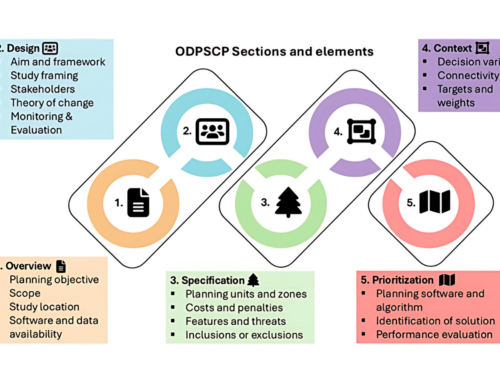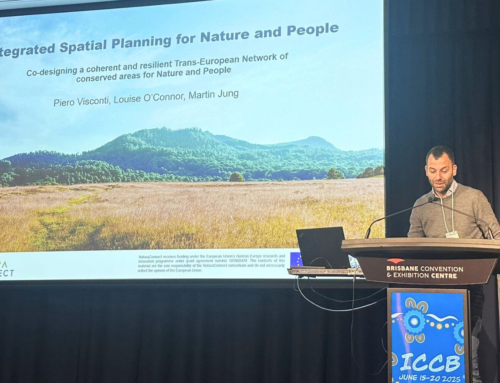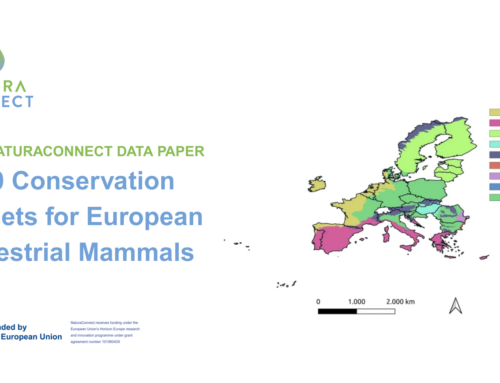Stakeholder engagement in conservation. Creating meaningful engagement for better conservation outcomes.
At the heart of effective conservation lie the principles of inclusivity and collaboration. Starting from our shared commitment to preserving and nurturing precious natural landscapes, this webinar offers inspiration for Protected Areas and Parks, conservation planning authorities, NGOs, and all individuals dedicated to safeguarding our planet’s biodiversity to engage with other people.
By actively involving stakeholders from diverse backgrounds and perspectives, we unlock a wealth of knowledge, creativity and passion that is essential to implement sustainable solutions. Participatory approaches not only foster a sense of ownership and responsibility among local communities, but also harness the collective wisdom needed to address complex conservation challenges. How can we start a constructive dialogue and create participatory engagement opportunities in order to reach better conservation outcomes?
This webinar offers practical strategies and insights from experts for implementation on the ground. Each speaker brings a unique perspective that will inspire and inform practitioners about a more inclusive and participatory conservation paradigm. It is designed for anyone passionate about conservation and eager to explore new avenues for collaboration and engagement.
Programme and Presentations
Introduction
Presentation by Marit Schnepf, EUROPARC Federation.
To introduce the participants’ perspectives, we asked them to complete the sentence:

Case Studies
Stakeholder engagement in value-abled landscapes – working with a variety of nature values in practice
Presentation by Kristian Bjørnstad of Norske Parker
Creating connections among people and nature is highly rewarding when it works. However, it’s most often challenging. In multi-functional landscapes, there are a number of competing interests and values at the same time. So, how do we consolidate these in practical processes? Based on experiences from establishing regional parks in Norway, Kristian will share some lessons learnt from bottom-up processes.
Stakeholder engagement in connectivity conservation
Presentation by Hildegard Meyer of WWF Central and Eastern Europe
With the experience of the many connectivity projects implemented in the Danube-Carpathian region, where engaging stakeholders has been an important part, Hildegard will talk about approaches at the local, cross-border and transnational levels and lessons learnt. You will hear about challenges and how they were addressed from the perspective of an NGO.
Stakeholder engagement, participation and mediative work – Insights from two case studies in Austria
Presentation by Eva-Maria Cattoen of LechtAlps
Participation and mediation promote engagement and help to avoid or reduce conflict escalation and social polarization. Eva-Maria demonstrates through two case studies from Austria, how external support can help overcome challenges and build trust and cooperation amongst different stakeholder groups – even in situations of conflict. The first case study is an example from a human-wildlife coexistence project to establish cooperation for strengthening the lynx population in the Eastern Austrian Alps. The second case study gives insights in a project where motivation and trust between stakeholder groups had to be re-established, in order to come back to the negotiation table for collaborating on new solutions regarding mountain biking in the surroundings of Innsbruck, Tyrol.
Other Resources
During the webinar, a lively discussion took place in the chat. Check other resources shared:
NaturaConnect Learning Platform, see training modules here.
Integrated Landscape Character Assessment, more information here.
4 Returns of Nature Restoration and Regeneration, more information here.
IPBES Values Assessment, see video here.
Nature Regional Landscape Parks Task Force, see publications here.
Interreg Danube Transnational Programme, more information here.
Carpathian Convention, more information here.
Environmental Mediation Initiative, more information here.




